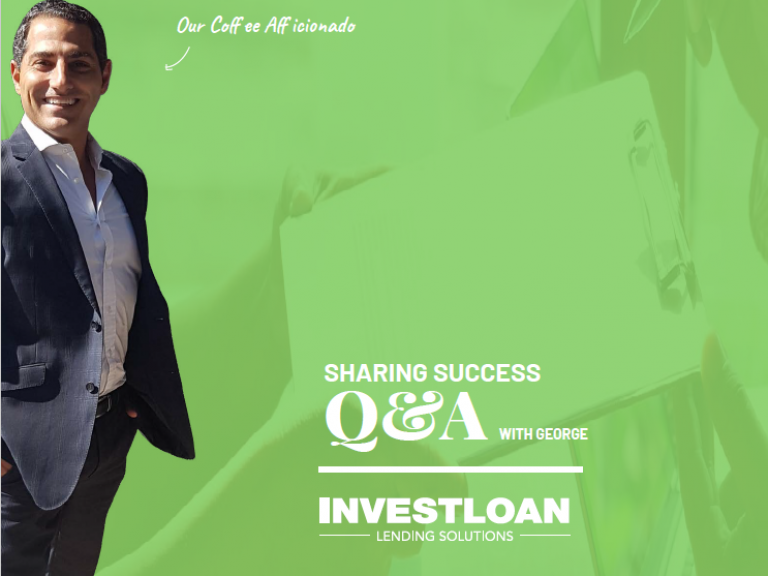
Stuck at the starting gate?
When it comes to any new endeavour, it’s the starting that stops most people. I see them at wealth-building seminars – even (or especially) the advanced ones. People who have the desire to be wealthy. People who know what it takes to be wealthy. They’ve read the books and attended the workshops and filled out the goal sheets. They’ve consulted the gurus. They’re excited. And they go home and – Time passes.
It doesn’t matter what you know, when it comes to your chosen success field. It doesn’t even – with apologies to the pundits – matter who you know. What matters is that you do something. Any step you take, any change you make puts you on the path: in the ‘flow’ of ideas and opportunities and contacts and resources. Sitting at home thinking about what it would be like to achieve your goal, gathering more information about how to go about it, wishing you could do something about it – intending to do something about it – is just a way of putting it off. ‘Deliberation’ can so easily be a camouflage for procrastination: ‘I’ll do it when I have all the information.’ Yeah, right…
‘Wishing’ you could achieve something is not the same thing as ‘believing’ you can achieve it. Once you believe you can, you will take the first step. If you even act as if you believe you can, you will take the first step – and then the belief will come. But if you’re stuck in wishing, you can be stuck for life.
So what stops people from starting? Let’s look at a few reasons I’ve heard. Tick any that apply to you – and take the counter-arguments on board. (Come back and read them again, as often as you need to, or as you find yourself stalled on any of these points.)
I still don’t KNOW enough!
Yes, the jargon and detail in a new field can seem overwhelming. And there will be plenty of so-called experts who will try and convince you that you know nothing and shouldn’t be thinking of investing (or starting that business, or taking up that interest) until you know everything. Wrong.
I know some completely uneducated property investors who have made millions of dollars. How? They took reliable advice, bought property... and waited. That’s about it. The safety net in any investment is that you really only need to look for two things: capital growth (so that your asset increases in value) and cash flow (so that, meanwhile, your income from the asset balances your expenses on it).
Signposts to Success
It all feels a bit uncomfortable
Well, it will, to start with. You’re going into new territory. And of course you might make a fool of yourself talking to a share broker, or estate agent, or small business adviser, or any other contact, for the first time. Don’t worry about it! I made an idiot of myself plenty of times when I was starting out. The fact is it doesn’t stop people dealing with you!
Once you put your hand up and say ‘I’m an investor [or whatever]’, people will start talking to you on that basis. And if all you do is listen for a while, you’ll still be moving forward... Don’t let your ego get in the way. Learn to make a fool of yourself – and you’ll learn that the ceiling doesn’t fall in: the sun rises again tomorrow. Most of the people you love will still be talking to you… Learn to do things that make you feel a bit uncomfortable: that’s how your comfort zone stretches…
I was afraid I’d make mistakes
Well, you just might. And you won’t be encouraged to commit yourself financially to anything until you genuinely feel secure with the level of risk. So there won’t be anything you can’t deal with – and learn from. Your main mistakes are more likely to be in handling other people: negotiating a deal, or handling an interview, say. Worst case scenario? You just walk away. There is always another opportunity around the corner. (But you won’t find that out until you try it…)
I didn’t feel I was getting anywhere
The Chinese philosopher Lao Tsu is credited with the saying: ‘The journey of a thousand miles begins with one step’. Each step on your success journey – not just the first – is moving you forward. And if you keep going, you’ll find you get into a rhythm; you build up momentum. At the start, progress may seem slow, but you are moving – and that’s how the signposts become clear.
I just never seemed to get round to it
OK... Perhaps you got really busy? Perhaps you don’t spend hours per week watching television, or sitting waiting for trains or appointments? Perhaps you have other priorities? In my experience, excuses like this are a cop out. And a cover up. A good way to tell what our priorities are is by how we allocate our time and money and energy. If you’re not focusing yours on your success goal (yet), maybe you need to have a look at what you really want from life. And maybe you need to think about discipline. Opportunity and abundance are free – but they’re not cheap. Getting into the ‘flow’ costs. You have to give up some things to win others. You have to stop wishing and start seeking. The good things life has to offer really do come to you – but not if you’re stuck on the couch. Sorry, but that’s the way it is. When you’re ready to choose success and you choose to move forward – in any direction – rather than standing still, you will find two or three hours per week to spend on your development and your future... And a whole lot more…
I just don’t believe I can…
Don’t wait ‘til you believe you can. Act as if you believe you can. Make the commitment to do it – and do it, whether you believe you can or not. You may not lose all those niggling self-doubts, but once you’re moving, you’re moving. And moving helps you to believe you can – because you can see it happening! It’s procrastination that erodes your self-belief: if you’re not doing it, you have less reason to think you can… The ABC of success: awareness, belief and conduct. Start with conduct, if that’s what it takes, and the others will fall into place.
The New-Old Story – And The Old-New Story

What baggage are you carrying, around your ability to start something new and carry it through? Past ‘non-starters’ in our history can create the self-image of a person who ‘can’t follow through’, or ‘can’t put ideas into action’… Do you label yourself this way? Were you labelled this way by someone else? ‘Oh, this is another of his fads.’… ‘Yes, it’s another phase she’s going through.’… ‘It’ll be just like the new bike and the roller blades: played with for five minutes and then forgotten about’… ‘You never finish what you’ve started’…
These kinds of statements become part of our personal mythology. They shape (and limit) our expectations of ourselves. (‘Well, what did I expect? I’ve never been good at…’) Old stories can trap us into unhelpful patterns of behaviour. Coming up with completely new stories can be daunting: it’s hard to re-invent ourselves totally from scratch! But here’s an empowering alternative.
• The new old story. You’re not repeating the same old story: you’ve changed. You’ve moved on, you’ve gained new resources. Instead of saying: ‘I’ve never been good at…’ try saying: ‘In the past I wasn’t very good at… But I’ve got new resources for handling that situation/challenge since then. I’d do things differently now – and that means I needn’t go down the same path as before!’ What experiences have you had that will give you new resources to try again – and do it differently? What knowledge have you gained? What new factors are there in the situation? You’re not doomed to repeat ‘the same old story’: the next chapter is new every time!
• The old new story. You’re not attempting to write a new story from scratch each time you try something new: you’re still ‘you’. You have the same resources now that you have used successfully before. Instead of saying: ‘I’ve never had experience in…’, try saying: ‘I haven’t had direct experience in… But I can draw on my experience of other challenges which I handled successfully in the past. I’ve got knowledge and skills and contacts – and I can bring them to bear on this new endeavour.’ What experiences have you had that you can utilise in approaching this situation? What factors are familiar? Which of your proven strengths will be helpful? You’re not doomed to launch into a ‘whole new chapter’ every time: you’ve got a ‘back story’ that you can use and build on.
Learn to take an inventory of your past history: make a list of your strengths and resources – for use in new situations in future. Appreciate what you’ve got, and build on it. Learn not to limit yourself to the inventory of your past history and your past repertoire of behaviours. This isn’t ‘Groundhog Day’: you only need to change one thing, add one resource, and you have the power to do things differently!
“Journey: One day you finally knew what you had to do, and began, though the voices around you kept shouting their bad advice… Little by little, as you left their voices behind, the stars began to burn through the sheets of clouds and there was a new voice which you slowly recognised as your own, that kept you company as you strode deeper and deeper into the world.” Mary Oliver (Pullitzer prize-winning poet)
Getting past wishing
When you take the first steps on a long journey – as you head towards the outer edges of your comfort zone – funny things happen. Confronted with the unknown, your mind can conjure up all kinds of fears, downsides, what-ifs, perhaps-I’d-better-nots and general excuses for slowing down and stopping. Or never starting. You’ll be finding out what they are, as you work through this programme...
Standing still isn’t an option. In financial terms, if you stand still, you go backwards: inflation eats your savings... In opportunity terms, if you stand still, you go backwards: you get older, knowledge/skill requirements change... The future really can pass you by. Inertia kills. Choose to move forward in any direction, rather than standing still. Your focus, your learning, your contacts along the way – and a thousand other circumstances you could never have foreseen – will provide the signposts you need.
And sticking with it…
I’ve said that once you get moving – once you commit yourself – all kinds of things start to ‘flow’ in your favour. And it’s true. So how come people start their success journey and don’t follow it through to the end? How come people give up? How come they ‘don’t make it’? Here are just a few possible answers.
• Lack of motivation. They may not be aware, going in, that there are factors sabotaging their desire to succeed or their belief that they can succeed. When the going gets tough, they recalculate the cost-benefit equation – and it just doesn’t seem worthwhile continuing. If your goal is worthwhile, you need to work at maintaining your motivation.
• Lack of information, skills or resources. Important as motivation and action are, being ‘gung ho’ is no substitute for educating yourself; keeping informed; seeking the help and support of other knowledgeable, skilled people; acquiring and managing the resources you need (finance, space, time, help and so on); learning; more learning; and practice! You have to be prepared to put in the effort and discipline required to be good at what you do: there are no short-cuts.
• Unrealistic goals. As we know from reality TV talent shows, not everyone who dreams of being a star has ‘what it takes’. It’s the same in any success endeavour. Success doesn’t mean achieving the impossible: it means achieving as much as possible, using your existing (or obtainable) capabilities and resources. Don’t set yourself up to fail by basing your goals on wishing you had attributes you don’t have and can’t develop. (There’s no point my dreaming of being a basketball star. However positively I think, I don’t reckon I’m going to get that tall… Getting the money and developing the expertise to play polo at a high level, though, has been a different matter!)
• Sabotage and self-sabotage. We can talk ourselves out of anything, if we try. And we can let other people do it for us, if we’re not careful. Get with resourceful, positive people!
• Complacency. People often get to a certain level of achievement or contentment and then take a breather: it’s sometimes called ‘resting on your laurels’. Past success feels good. It earns you respect and self-respect. And sometimes you just need to have a well-earned rest, and celebrate (rightfully) what you’ve achieved, and let what you’ve learned sink in a bit. But the world doesn’t stand still. If you stop moving for too long, it gets very hard to maintain your success – let alone to get moving again, when (or if) you want to… You can easily lose your way if you stop learning; let the discipline slip and settle for ‘coasting along’. Inertia keeps pulling you towards immobility, and will (if possible) fool you into thinking that immobility is a legitimate right and reward for your previous labours. Don’t believe it!
• Lack of persistence. Success costs. Life isn’t easy. Sometimes, giving up is going to look like the most attractive – perhaps even the most sensible – option. I think it was Winston Churchill who had as his motto: ‘Never, never, never give up.’ Sometimes, that’s what it will come down to. Every time you overcome an obstacle, through persistent trying, you build new resources: belief in yourself and the expectation that next time, as this time, persistence will see you through. You only fail if you give up. Edison invented a working lightbulb on his thousandth try: what would have happened if he gave up (as any sane person might have advised him to) at try number 999? You’ve knocked on fourteen doors: are you going to give up – when the fifteenth door might be the one that opens? Great mountains can be eroded one drop of water at a time. Build enjoyment into the journey – and don’t be in a hurry: you’ll get there if you keep going.
Un-Learning

We do things in ways that our mindsets, expectations, past experience/learning and habits have taught us. Fact of life. Snow skiing and water skiing may look vaguely similar, but if you try to snow ski the same way you water ski – you end up on your face (or worse...). The apparent familiarity makes you feel pleasantly confident, but it can also blind you to the fact that the principles and techniques involved are quite different.
Logic and emotions/expectations can give you two conflicting messages – and it’s generally what we know best that shouts loudest. When you’re on top of a mountain, thinking about heading down, logic and science and the ski instructor and all those good things are telling you that to stay in complete control, you need to lean down the mountain, with all your weight on your downhill leg. Meanwhile, your emotions (and possibly your water-ski-based assumptions) are telling you to keep your bum as close to the snow as humanly possible!
It’s easy to say ‘go with the logic’ or ‘go with what you’re told by the expert’ – and I’m the first to admit that, for a novice, hurtling down a mountain at 30-40 kph doesn’t feel ‘in control’ at all: and, yes, the temptation to lean cautiously back into the slope is fairly powerful. But that’s the reason you see me, and a fair few others, losing control on the slopes and ending up with our bums on the snow. We let emotion and what we think we know make our decisions for us.
And that’s exactly how too many people approach their success goals. Take investing in real estate. People take the (largely emotional) experience they have in choosing their own home – and try to apply it to choosing an investment property. Logic and science and good advice go out the window: after all, they know how to choose a ‘home’, don’t they? Quite possibly. But choosing a property that will earn them capital growth and reliable rental income, leverage their further borrowing/investing potential and give them the best possible tax breaks (to mention only a few key selection criteria) is a somewhat different proposition. So how do you un-learn things you know, or think you know?
• Open your mind to new information If someone tells you (or you observe) how to do something – and it connects with something ‘similar’ in your mind/experience, resist the temptation to go with the old version instead of the new, or to stop listening/watching because you assume you already know, on the basis of the ‘similarity’. If you hear your mind say ‘I know better than that’ or ‘I prefer my way’, take this as a serious warning: you need to double-check whether you are just clinging to old assumptions, old information and ego satisfaction (old-fashioned stubborn pride) – or whether your intuition is really telling you to follow your own way. In other words: guys, if you’re really not sure where you’re going – stop and ask for directions!
• Deliberately open your mind to information that contradicts what you think, know or believe Get used to thinking and saying ‘and’ instead of ‘but’. Two different viewpoints or pieces of information aren’t necessarily mutually exclusive: both can be right in context, and often at the same time. It’s more difficult for some personality types to see this than for others: you know who you are!... As a discipline, learn to silence your ‘but’ until you’ve heard all the information and given it a fair chance.
• Welcome feedback from others Criticism may be undeserved, and it may be ill-intentioned. But there will always be something in it that you can use. Ask for feedback from other people, and look for the useful bits. In our skiing example, it’s often not until someone else (preferably a ski instructor or more accomplished skier) watches us and tells us what we’re doing that we start learning… (Don’t you just wish some of the people who audition for TV singing competitions had listened to a trusted friend…?) We want to dream – but not to delude ourselves…
• Monitor your results The first time you fall on your face, when you try snow skiing the way you water ski, you need to stop and reflect. Why didn’t that go the way I expected it to and wanted it to? In answering this question, one of your hypotheses may be: ‘Perhaps you can’t translate your water ski strategies to snow skiing?’ You can then ask: What might be different? What might I need to do differently? That’s how we learn: by questioning our assumptions and strategies, in the light of their results – and trying something different next time. (That’s hansei kaizen in action: learning by ruthless self-reflection to make continuous improvements...)
• Monitor your patterns If you keep getting results you don’t want – or, as you reflect on your experiences, you notice that you make the same unsuccessful responses in similar situations, over and over again – you might identify a habitual pattern of behaviour. This is a pre-disposition or tendency to behave in a certain way. It’s the sort of thing where you might catch yourself saying: ‘Oh, I always do that...’ Of course, you don’t (and certainly needn’t) ‘always’ do that, although the chances are that you do it quite often. We develop conditioned (habitual) responses to certain stimuli or situations. But we can re-condition (or re-train) those responses, so that we have the option to adopt more effective ones.
• Choose to do something different Once you’ve identified patterns and habits, deliberately break them! You only have to change one small element of your response – make any change, however small – to break the pattern. Do it more than once, and you’ve started to develop a new pattern. Reward yourself for changes that have positive results, or move in the direction you want to go. Let go of changes that don’t have the results you wanted. Don’t give them importance by beating yourself up about them or dwelling on them: just tell yourself you’ve learned something and move on. You are conditioning or training yourself to adopt the new (learned) behaviours that work for you. (If you remember your school biology, this worked for Skinner’s rats and Pavlov’s dogs. It works for people too.)
Rewarding yourself for new behaviours is much more effective as a way of unlearning and relearning than punishing yourself for the old behaviours: trust me. (And if you don’t – perhaps you’ve got some unlearning to do in this area...?)
“Do not be afraid to work in your garden. Let your innate intelligence direct you out from under the compost heaped upon you. Your tears will provide the water that softens the soil and leads you to the light. You will then grow straight, tall and free of scars. Now is the right season for growth; be inspired and start toward the light. It is not as far away as it seems. Remember that a seed sees no light, but knows the right direction to grow in. That knowledge and wisdom is in you too.” - Bernie Siegel, ‘Prescriptions for living’
>>> Coming Next: What's Undermining Your Joy?
Please note: This is an extract from the Success From Scratch – it may not contain the exercises from the full version of the book/audio set, for full version please contact us or follow our blog for more.
Thank you,
The team@Custodian








